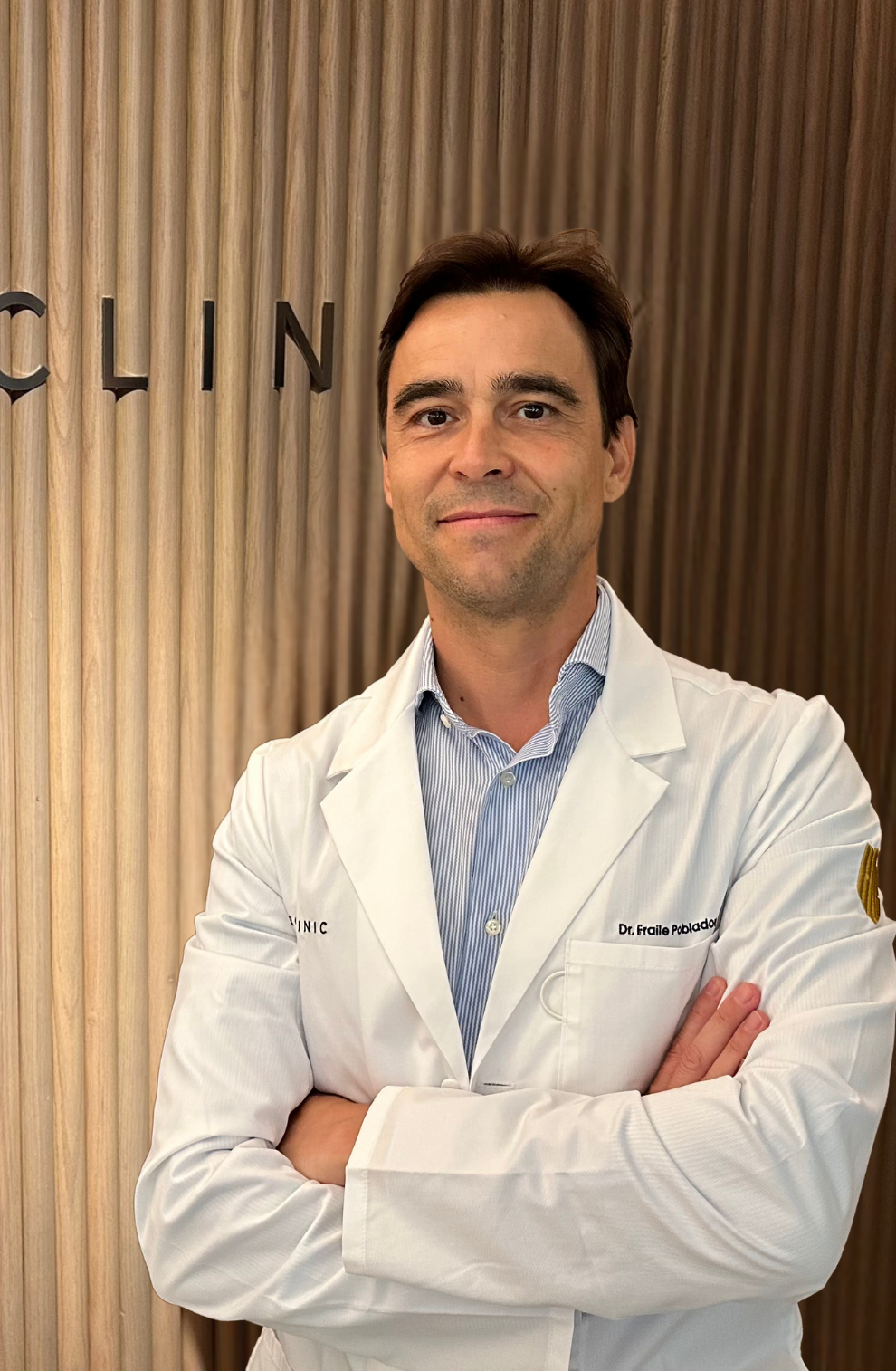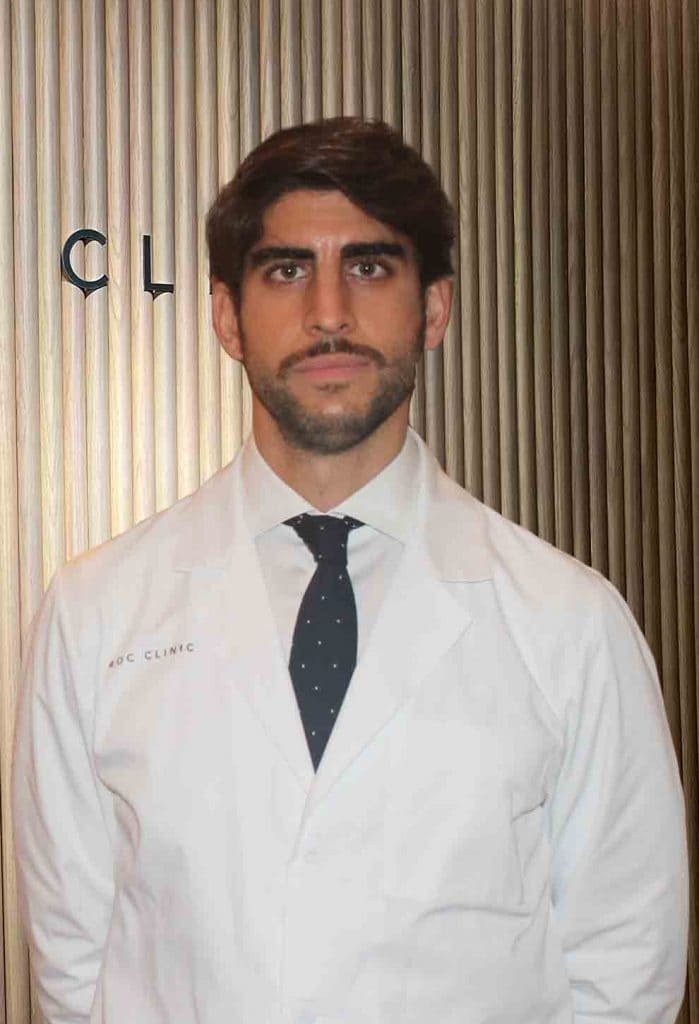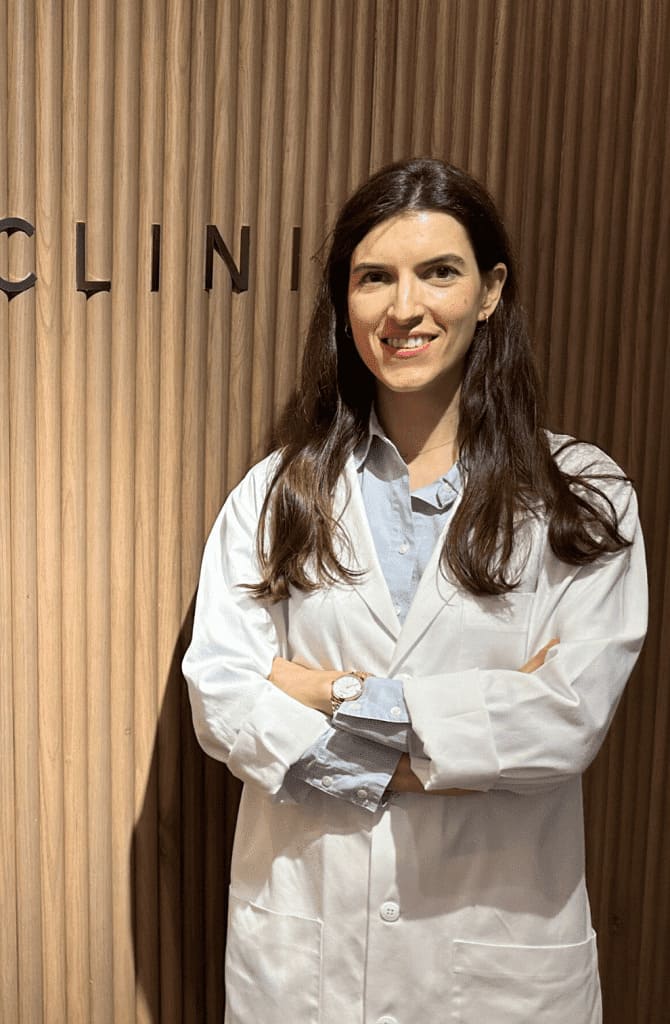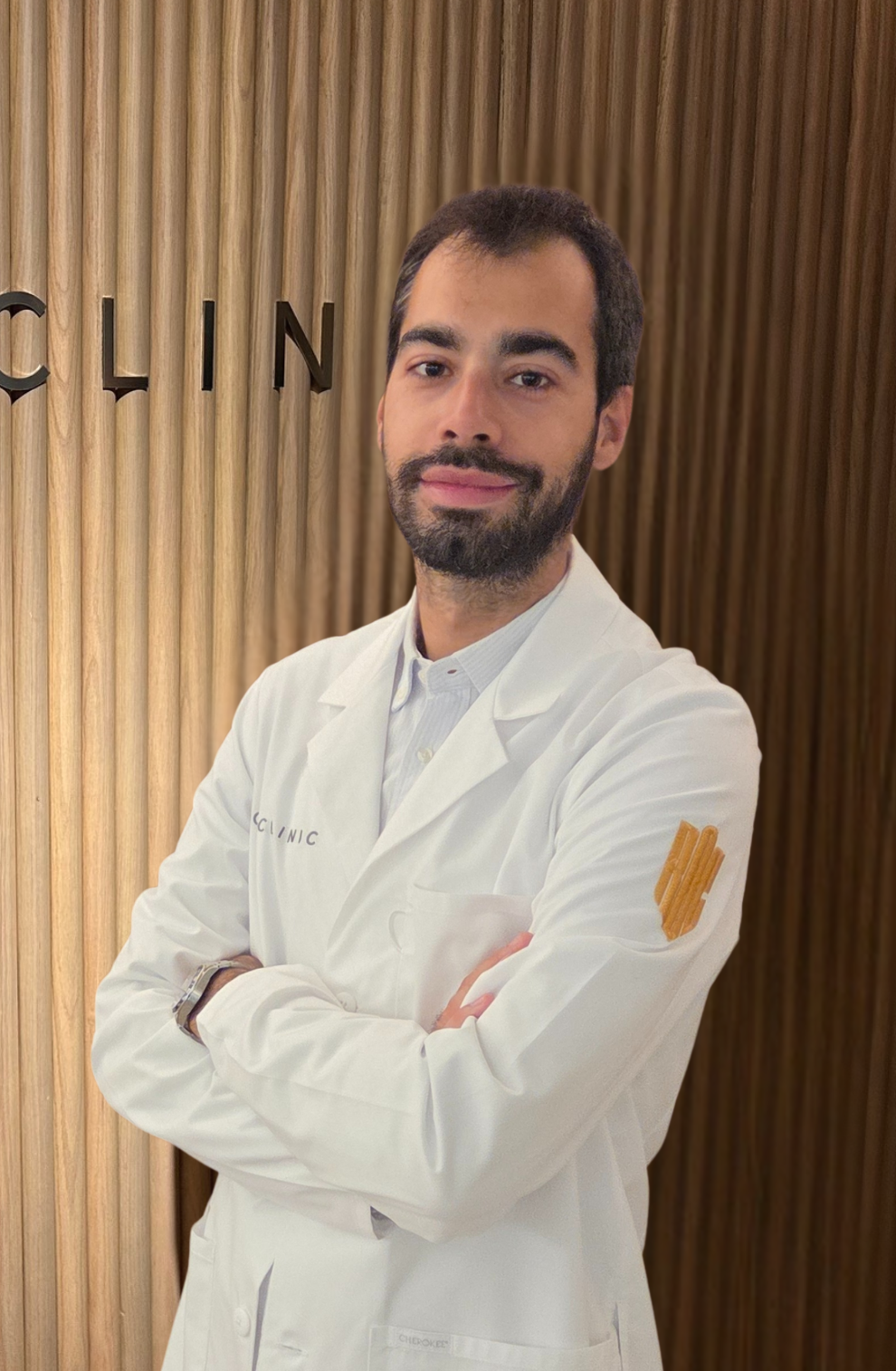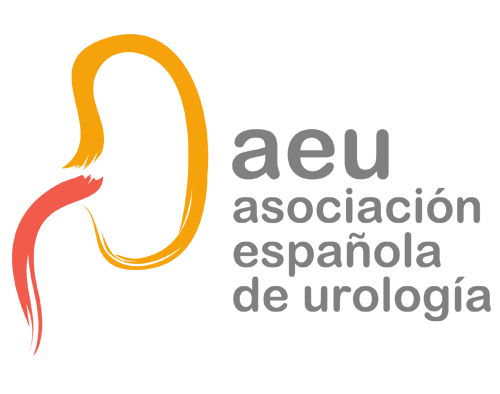Symptoms and causes Male Urinary Incontinence
To put an end to involuntary urine loss, it is important to find the cause of the problem in order to reverse it completely or, failing that, to attack the cause as effectively as possible.
- Super-specialized urologists
- Personalized treatment
- Minimally invasive approach
- More than 16,000 patients successfully treated
Male Urinary Incontinence Symptoms
The main symptom of urinary incontinence, whatever its cause, is urine leakage. Sometimes, depending on the cause, it may be accompanied by other symptoms.
This condition is usually worsened by forcing urination, either by drinking water or by treatment with diuretics.
- When urinary incontinence is stress incontinence, it is associated with exertion such as coughing, laughing, lifting or straining. Most men who suffer from stress urinary incontinence explain that the condition is better in the morning and worsens in the afternoon. It does not usually cause problems at night, when sleeping.
- Urge urinary incontinence is defined as the loss of urine in relation to a feeling of urgent and extremely intense urge to urinate. It is not usually associated with a specific time of day, but sometimes men report this type of incontinence, especially when they arrive home or when they are close to home (in the elevator or when they are opening the door). Urge incontinence is often made worse by the consumption of certain substances that "irritate" the bladder such as alcohol, carbonated or sugary drinks or spicy foods.
- Overflow urinary incontinence is an uncommon and difficult to diagnose condition. It occurs in men with prostate problems and a new onset incontinence condition that is not easily classified as urge or stress incontinence (although it is somewhat more reminiscent of stress incontinence).
Causes of Male Urinary Incontinence
Stress urinary incontinence
In men, stress urinary incontinence is due to urological surgeries or procedures, such as prostate or bladder surgery. Among them we can mention transurethral resection of the prostate, radical prostatectomy or prostate radiotherapy, among others. These procedures can injure the urinary sphincter causing its incompetence. Some men experience urinary incontinence after one of these procedures, which usually improves with time.
In other cases it may be due to denervation of the urinary sphincter - the closing mechanism - produced by neurological diseases, such as diabetes, multiple sclerosis, polyneuropathy of any cause. In this situation, the symptom is usually the loss of urine when performing some effort or activities. It is very common that in this situation the severity of incontinence evolves parallel to the neurological disease that produces it.
Urgency urinary incontinence
Urge urinary incontinence appears in men after the age of 50. It may be due to age-related bladder deterioration or prostate problems. Although the mechanism is complex and multifactorial, benign prostatic hyperplasia would produce obstruction and the bladder would respond by increasing voiding pressure through hypertrophy of the detrusor muscle (bladder muscle). This is associated with increased fibrosis, decreased distensibility and the appearance of urinary filling symptoms such as voiding urgency. Although this is a very common situation with benign prostatic hyperplasia (BPH), it can also appear in other situations such as bladder tumor, urethral stricture or bladder neck contraction, among others.
Some foods rich in caffeine, spicy foods or alcohol can make it worse. It is surprising the improvement that some men experience when eliminating these substances from their diet.
Also, some drugs can make bladder emptying more difficult and worsen the clinical picture. There are drugs, such as sympathomimetics, which can produce alterations of the urinary sphincter and worsen voiding. Paradoxically, this can lead to urgency urinary incontinence.
Mixed urinary incontinence
When incontinence is mixed, the cause is usually an obstructive problem (benign prostatic hyperplasia, prostate cancer, urethral stricture) that causes bladder overload, associated with urge incontinence after surgery or urological procedure. It will be necessary to identify the major component that dominates the picture.
Overflow urinary incontinence
The only cause of overflow urinary incontinence is urinary retention. In most cases it is caused by prostatic obstruction or urethral stricture. Some medications (sympathomimetics or beta-2-agonists) can trigger urinary retention and secondarily overflow urine loss. Usually, these are men with long-standing prostate symptoms that have gradually worsened over time and who present urinary incontinence that is difficult to define, with more of a stress component than an urgency component, but which is difficult to classify.
Physical examination usually puts us on the track by identifying a urinary bladder full of urine, painful on examination and whose pressure when explored triggers an episode of incontinence.
They ask us in the Consultation
I don't want to take pills for urinary incontinence, is there anything I can do?
Yes, strengthening the pelvic floor is very effective in treating urinary incontinence, regardless of the cause.
Can I be incontinent because of something I ate or drank?
Some substances such as caffeine, alcohol, spicy foods or carbonated beverages, among others, can worsen urinary incontinence, but we must always look for other causes.
I am very embarrassed about my incontinence, can I use a diaper or absorbent pad?
Yes, there are protective measures to limit the extent of incontinence so that you can live as normal a life as possible, but our advice is always to get to the diagnosis in order to solve it.
Does the prostate cause urinary incontinence?
Yes, it is very common. After the age of 40, a large percentage of men have urinary symptoms and that can be associated with incontinence. Get prostate checkups if you are over 50 or if you have any urinary symptoms.
Team of the Male Urinary Incontinence Unit
Newsof ROC Clinic in Male Urinary Incontinence
Research
Adjustable Transobturator Male Sling (ATOMS) for Post-Prostatectomy Stress Urinary Incontinence
Technology
Artificial urinary sphincter implant for severe cases of stress urinary incontinence.

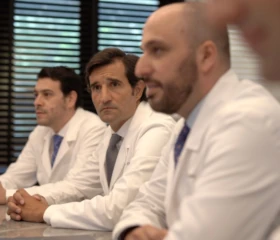
 +34 912 627 104
+34 912 627 104 Contact
Contact
